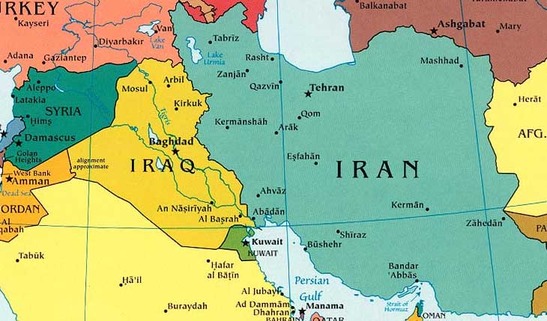
"...We were never going to be able to keep 100,000 soliders in Iraq forever. And by the same token, Iran can’t just leave the region and go be somewhere else. Some degree of Iranian influence is simply inevitable and always was." Yglesias
In the COMPASS/ here and here... the fact that these two countries - both, just a quarter of a century ago, having been engaged in arguably the nastiest, bloodiest war in modern Mideast history - have come this far would normally be the stuff of historical praise; something akin to Europe's rise from warring rivals to peaceful partners. Their economic and religious ties have been well documented, and despitenewly-electedIraqi President and likely-PM-to-be Ayad Allawi's rhetoric, it's highly unlikely he'll do too much to shake the boat on Iraq-Iran relations.This is why the horse race handicapping of which Shia factions are up or down in Iraq on any given day makes very little sense to me. One needn't know who the president of Iraq is, or whether or not "pro-Iran" political parties are influencing elections and government decisions, in order to measure Iranian influence inside Iraq. A globe or a good map should do the trick.The problem with our thinking on Iranian influence in Iraq is we assume it to all be nefarious and cabal-esque, when in truth much of it is just geographic destiny. Iranian influence in Iraq is inevitable and - thanks in part to the United States - now expedited. There's no horse race to handicap in this case; that race was lost in 2003..................... were Iranian influence in Iraq not marred by the ever-nebulous and changing concept of "American interests," we'd likely be cheering and gushing over such short order rapprochement between two bitter enemies.And it should go without saying that there indeed are negative consequences for the United States should Iran exerts too much influence in Baghdad - especially if those interests are anything close to what we were told they'd be in 2003 and onward. Indeed, if keeping Iran isolated in its own neighborhood was imperative for American interests and security, then we basically acted in direct contradiction to that specific interest (there's a reason Iran rolled out the red carpet for the invasion of Afghanistan, after all).And I believe the problem isn't just the policy, but the policymakers. The goalposts are constantly being moved on American interests in the Middle East, as wonks and writers jump from one bogeyman to the next. But this isn't strategy, it's just reaction; a bouncy ball of central front-ery.
No comments:
Post a Comment